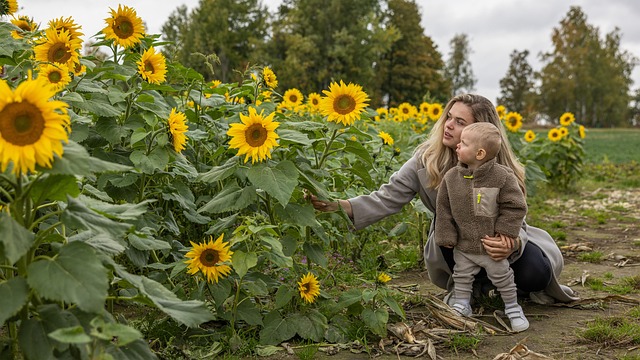Parental alienation severely impacts children's emotional well-being, causing distress, security issues, and future relationship problems. Effective co-parenting support is key to mitigating these effects through open communication, shared decision-making, consistent boundaries, and prioritizing the child's best interests. Support systems like counseling and co-parenting groups play a crucial role in creating a stable environment, fostering positive interactions, and minimizing exposure to negative parent-child dynamics. By implementing these strategies, parents can help children heal and thrive despite alienation.
Parental alienation can have profound, lasting effects on children, shaping their emotional well-being and future relationships. This compelling article delves into the intricacies of understanding and addressing this complex issue. We explore the impact of parental alienation, highlighting the crucial role of co-parenting support in mitigating its effects. Through effective communication strategies and the establishment of a stable environment, parents can foster resilience in their children, ensuring they navigate life’s challenges with strength and adaptability.
- Understanding Parental Alienation and Its Impact on Children
- The Role of Co-Parenting in Mitigating Alienation Effects
- Strategies for Effective Communication and Support
- Building a Stable Environment: Resources and Professional Help
Understanding Parental Alienation and Its Impact on Children

Parental alienation occurs when a parent manipulates a child’s affection, causing them to reject or feel hostile toward the other parent. This damaging dynamic often arises during and after divorce or separation, leading to severe emotional and psychological consequences for children caught in the middle. The impact can be profound, affecting their sense of security, self-esteem, and ability to form healthy relationships in the future.
Children affected by parental alienation may exhibit withdrawal, anxiety, depression, and behavioral issues. They might struggle with trust, find it hard to form close bonds, and experience confusion about their own feelings and loyalties. A supportive co-parenting relationship is crucial in mitigating these effects. By maintaining open communication, setting consistent boundaries, and prioritizing the child’s emotional well-being, both parents can work together to foster a stable environment, enabling children to heal and thrive despite the alienation.
The Role of Co-Parenting in Mitigating Alienation Effects

In cases of parental alienation, where one parent attempts to turn a child against the other, co-parenting plays a crucial role in mitigating the negative effects on the child’s well-being. Effective co-parenting support involves open communication, shared decision-making, and creating a consistent and stable environment for the child. Both parents must prioritize their child’s best interests above their own personal conflicts, fostering an atmosphere of love, respect, and understanding.
By engaging in healthy co-parenting practices, they can reduce the risk of alienation by minimizing exposure to negative interactions and maintaining a positive relationship with both parents. This includes establishing clear and respectful boundaries, ensuring regular access to each parent, and refraining from using the child as a pawn in the parental conflict. Co-parenting support programs or therapy can also provide guidance and tools for managing these complex situations.
Strategies for Effective Communication and Support

In cases of parental alienation, establishing and maintaining open communication channels is paramount for a child’s well-being. Co-parenting support becomes an essential tool to bridge the gap created by conflict between parents. Encouraging regular, positive interactions ensures children feel secure and valued, fostering an environment where they can express their feelings freely. This involves setting consistent schedules for visits, maintaining open lines of communication about daily routines, and promoting a unified front in decision-making processes related to the child’s upbringing.
Support systems play a crucial role in mitigating the effects of parental alienation. This includes not only professional counseling or therapy but also the involvement of close family members and friends who can act as a stable support network for both the child and the affected parent. Co-parenting support groups, where parents navigate their challenges together, can also be immensely beneficial, offering a safe space to share experiences, gain insights, and develop strategies to enhance communication and resolve conflicts constructively.
Building a Stable Environment: Resources and Professional Help

Creating a stable environment is paramount when mitigating the effects of parental alienation on children. This involves fostering open communication and establishing consistent routines between both parents, despite any ongoing conflicts. Co-parenting support plays a crucial role here; it encourages shared decision-making and provides strategies to navigate challenging conversations, ensuring the child’s needs remain at the forefront.
Resources such as co-parenting classes, counseling services, and professional mediators can offer valuable tools and insights. These measures help parents set aside personal disagreements, focus on their shared parenting role, and create a secure, predictable environment—a crucial foundation for a child’s emotional well-being.
Parental alienation can have profound effects on children, but understanding its impact and taking proactive measures can significantly mitigate these effects. Co-parenting plays a crucial role in fostering healthy relationships and communication between alienated children and their affected parents. By prioritizing open dialogue, empathy, and mutual respect, co-parenting support networks help create a stable environment essential for a child’s emotional well-being. Utilizing strategies like consistent routines, shared activities, and professional counseling ensures that children receive the necessary tools to navigate complex familial dynamics, ultimately fostering resilience and healthy coping mechanisms.
